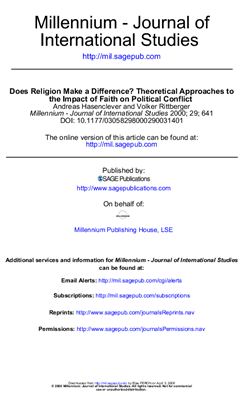As observed by many scholars, a renaissance of religious traditions
is taking place
virtually all over the globe.1 Contrary to once widespread expectations that religion
would gradually disappear as a political force in modeising societies, religious
communities have been getting stronger in most nations over the last two decades
or so. Their leaders put forward grievances about discrimination, raise claims as to
how state and society should be organised, and mobilise the faithful into action.
Social institutions such as schools, charities and hospitals are run in the name of
their respective religious denominations. In many Muslim countries, there are calls
for the introduction of the sharia as public law. In India, Hindu nationalists attempt
to establish their creed as the state privileged religion. In the US the ‘Christian
Right’ tries to capture the state for the dissemination and implementation of the
eteal truth as they understand it.
virtually all over the globe.1 Contrary to once widespread expectations that religion
would gradually disappear as a political force in modeising societies, religious
communities have been getting stronger in most nations over the last two decades
or so. Their leaders put forward grievances about discrimination, raise claims as to
how state and society should be organised, and mobilise the faithful into action.
Social institutions such as schools, charities and hospitals are run in the name of
their respective religious denominations. In many Muslim countries, there are calls
for the introduction of the sharia as public law. In India, Hindu nationalists attempt
to establish their creed as the state privileged religion. In the US the ‘Christian
Right’ tries to capture the state for the dissemination and implementation of the
eteal truth as they understand it.

